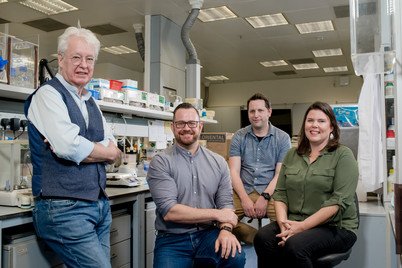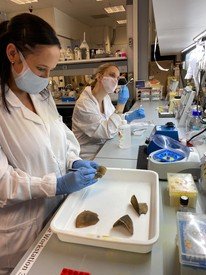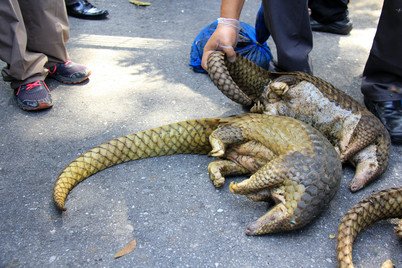Using Data to Protect Wildlife
Hong Kong is a major hub for international wildlife trade. The Conservation Forensics team’s research is providing data to support efforts to combat and reduce the illegal trade of wild species.
As well as being an international financial and trading hub, Hong Kong has also earned the unwelcome title of being a major hub for the global trade in wildlife – much of which is illegal. Hong Kong is a major transportation hub and is geographically well located for the business as demand for the wildlife is mainly from Asia. It is a longstanding problem: Between 1997 and 2016, the city ranked 6th in the world based on the value of the trade per ‘country’, accounting for about US$250 billion.
The breadth and size of the trade makes it difficult to monitor and the number of species involved make monitoring by customs particularly complex. Furthermore, the value of traded wildlife increases as their populations decline and they become rarer, and this drives ever-greater exploitation of threatened species. A team from the School of Biological Sciences has been making substantial progress in reducing the trade through the use of data forensics and techniques such as barcoding, genomics, diet analysis and population genetics to track wildlife and traders. The team analyses trade networks to identify trade routes and trading hotspots for pangolins, for example, and analyses trends in the live trade of reptiles and birds in Hong Kong. Other research projects focus on identifying species using molecular techniques for juvenile eels and shark fins.
“You need to know which species is being traded,” said Dr Caroline Dingle. “Some are legal to trade, and some are not.”
The data is shared with enforcement agencies to help them target their efforts. The team also collaborates with Faculty of Law to develop species impact statements that are used to give judges and prosecutors a deeper understanding of the impact of illegal trade, including the ecological impacts and market value of the animals.
The team also works with the Hong Kong Customs and Excise Department and organisations including the World Wide Fund for Nature (WWF), National Geographic and TRAFFIC, and the collaboration has had big results, including the arrest of a group of 40 people in the European Union involved in trading in eels from Europe. Their research has also helped increase protection for endangered species including freshwater turtles, pangolins and potentially songbirds. Songbirds, in demand as pets or for use in songbird competitions, are under threat due to lack of trade monitoring, said Dr Dingle. “Over 30 species in Asia are threatened with extinction due to this trade,” she remarked, adding that the impact has left entire forests silent in Indonesia after all the birds have been hunted out.
The team also raises awareness of the threat to wildlife by hosting workshops and seminars, and giving interviews to local and international press.
In the meantime, she and her team continue to work on the data, bolstered by the knowledge that “the work we’ve done is helping enforcement efforts to reduce Hong Kong’s role as an international wildlife trade hub,” she added.
Dr Caroline Dingle, Dr David Baker, Dr Timothy Bonebrake, and Professor David Dudgeon of the School of Biological Sciences received the University’s Knowledge Exchange Excellence Award 2020 for the project ‘Reduction of Illegal Global Wildlife Trade through Novel Conservation Forensics Research’.




![The Conservation Forensics team conducts analyses on different species including sharks, tokay geckos, helmeted hornbills, cockatoos and pangolins [photo credit: Chloe Hatten]](/f/story/1137/402p275/conducts%20analyses%20on%20many%20different%20species.jpg)
